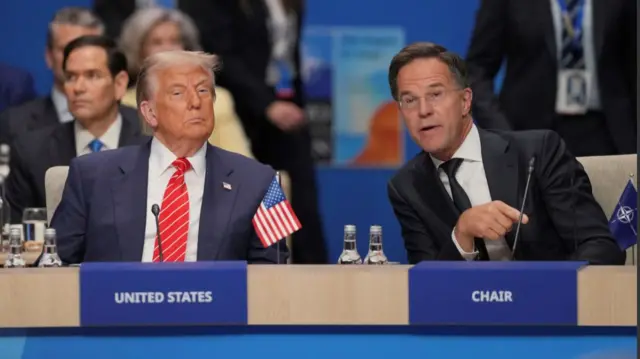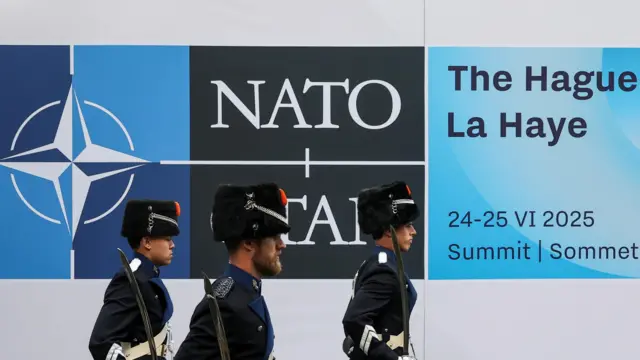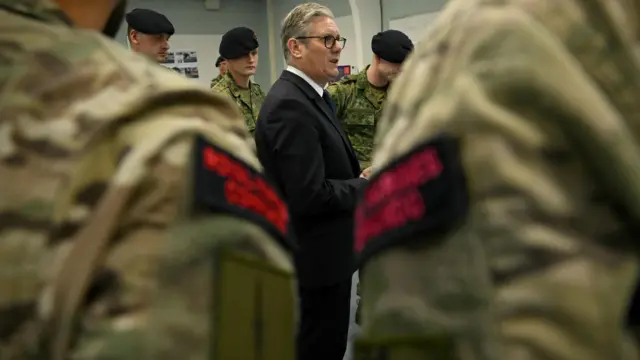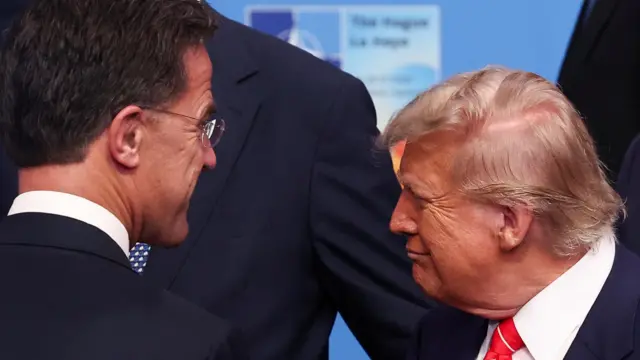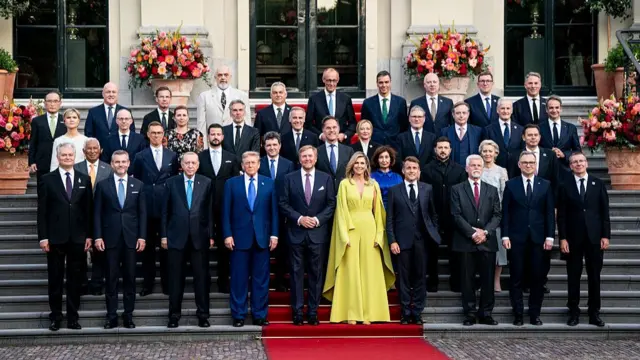Starmer asked about lack of condemnation of Russia in joint Nato statementpublished at 14:06 BST 25 June
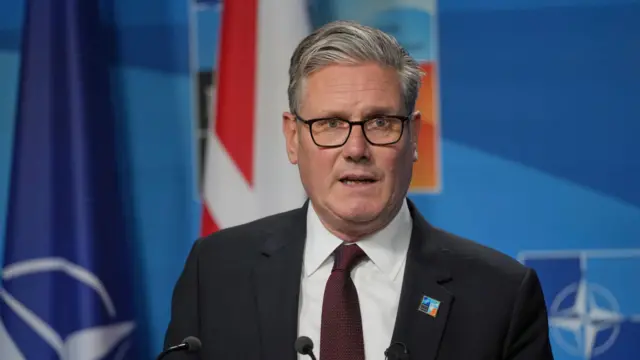 Image source, PA
Image source, PAStarmer is now being quizzed by reporters.
Sky News' Beth Rigby asks the prime minister about the lack of condemnation of Russia's war in Nato's newly-released final declaration.
Starmer says the position of Nato has not changed, nor his own.
He says there has in fact been a real resolve that now is the time to push again to get Putin to the table to negotiate an unconditional ceasefire.


